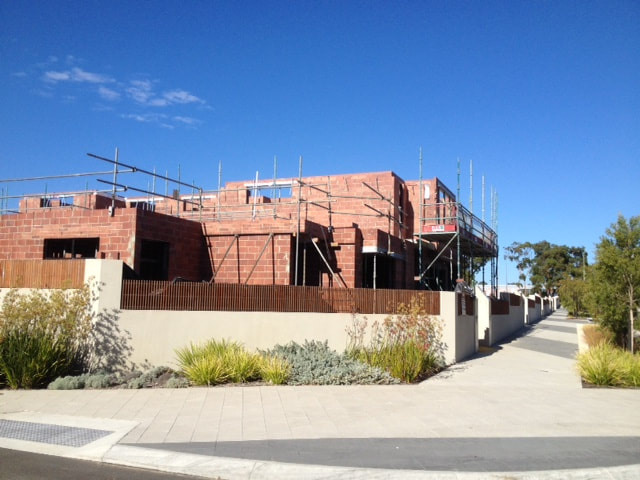When it comes to expanding or improving your business premises, you may be faced with the decision of whether to go for commercial construction or renovation. Both options have their own set of benefits and challenges, and the right choice depends largely on your business’s needs, budget, and future plans. In this blog post, we will compare commercial construction and renovation to help you determine which option is best for your business.
What is Commercial Construction?
Commercial construction refers to the process of building a new structure from the ground up or creating an entirely new space within an existing property. This could include office buildings, retail stores, warehouses, and industrial facilities. Commercial construction projects are typically large-scale and require more extensive planning, resources, and time than smaller-scale projects.
What is Renovation?
Renovation, on the other hand, involves updating or improving an existing building or space. Renovations may include a variety of tasks such as redesigning interiors, upgrading infrastructure, or replacing outdated systems. Unlike new construction, renovation projects focus on enhancing the current structure, often with the goal of improving functionality, aesthetic appeal, or energy efficiency.
Key Considerations When Choosing Between Commercial Construction and Renovation
- Space Requirements and Business Needs
Your space requirements are one of the most important factors when deciding between construction and renovation. If your business needs a completely new layout or much more space than what is currently available, new commercial construction may be the better option. Building from the ground up allows you to design a space tailored specifically to your needs.
However, if the existing structure has the basic framework to accommodate your operations, a renovation might be a more cost-effective solution. You could reconfigure the existing space to better serve your business without having to start from scratch.
For example, a growing business that needs to add more office spaces might choose to renovate an existing commercial building. On the other hand, a business seeking to expand into an entirely new market may find commercial construction the most beneficial to create a completely new building.
- Budget and Financial Considerations
The cost is often one of the deciding factors in whether to pursue construction or renovation. Commercial construction projects tend to be significantly more expensive than renovations due to the complexity of building a new structure, obtaining permits, and complying with various building codes. However, the long-term benefits of having a purpose-built building might justify the initial investment.
Renovations, while potentially less costly, can also present unexpected expenses. When renovating an old structure, you may encounter hidden issues such as outdated wiring, structural damage, or HVAC system problems. These hidden costs can drive up the overall cost of the renovation and may make it less cost-effective than initially anticipated.
You should weigh the potential for hidden costs in renovations against the known costs of starting fresh with new construction. Your financial situation and the availability of funds for a large-scale project should be factored into your decision-making process.
- Timeline and Disruption
The timeline for completion is another important consideration. Commercial construction projects typically take much longer than renovations. Building a new structure requires securing land, obtaining permits, completing site preparation, and coordinating various contractors. On average, commercial construction can take several months, or even years, depending on the size and scope of the project.
Renovation projects, by contrast, tend to have shorter timelines, especially if you are working within an existing building structure. However, renovations can still disrupt business operations, depending on the extent of the work. If you plan to remain operational during renovations, you may face inconveniences, such as limited access to certain areas of your building or noise disruptions.
If minimizing downtime is critical for your business, you may need to consider whether renovations can be completed in phases or during off-hours to reduce interruptions. In some cases, a new construction project may require temporary relocation or even more time to complete, which could impact your business operations.
- Regulatory Compliance and Zoning
Both commercial construction and renovation projects must comply with local zoning laws and building codes. However, new construction projects may face more significant challenges with obtaining permits, zoning approvals, and meeting new building code requirements. In some cases, the land you are considering for new construction may not be zoned for commercial use or may require special permits.
Renovation projects, on the other hand, might face fewer regulatory hurdles, particularly if the existing building is already up to code. However, if you’re making significant structural changes or upgrades to systems such as plumbing or electrical, you will still need to comply with relevant regulations and codes. Keep in mind that historical buildings or older properties may have additional restrictions when it comes to renovation work.
- Long-Term Goals and Flexibility
When evaluating whether commercial construction or renovation is right for your business, it’s important to consider your long-term goals. If you foresee substantial growth or expansion in the future, building a custom space through new construction may be the best option. A purpose-built commercial space allows you to anticipate your future needs and create a facility designed for maximum efficiency and scalability.
Renovations can also provide flexibility, but they may come with limitations. If you renovate an existing building, you may not have the freedom to design everything exactly as you envision, especially if the structure has certain constraints. For example, if your business is growing quickly, a renovation might not provide the flexibility you need to accommodate future changes.

- Aesthetic Appeal and Branding
The design of your business space can have a big impact on your brand’s image and customer perception. New commercial construction offers an opportunity to create a modern, customized space that aligns with your branding and customer expectations. This can be particularly important for retail businesses, restaurants, and service-based companies that rely on creating a welcoming, attractive environment for clients.
Renovations can also improve the aesthetic appeal of a space, but they may be limited by the existing layout and design. In some cases, a renovation might involve updating outdated features, but it may not be able to provide the same level of customization as new construction. If brand identity and aesthetic appeal are important for your business, this may be a deciding factor.
- Environmental Impact and Sustainability
In today’s world, sustainability is an important factor for many businesses. New commercial construction allows you to incorporate modern, energy-efficient technologies and green building practices, which can help reduce your environmental footprint in the long run. You can install energy-efficient HVAC systems, LED lighting, sustainable materials, and other eco-friendly features right from the start.
Renovations also present an opportunity to improve the sustainability of an existing building. By upgrading insulation, windows, and systems, you can increase energy efficiency and reduce the environmental impact of your business. However, retrofitting an older building to meet modern sustainability standards may come with higher costs, and some of the building’s systems may be difficult to upgrade without significant alterations.
One valuable resource for understanding the commercial construction and renovation industry, along with the latest trends, is CCR-Mag.com. This platform provides expert advice, news, and insights that can help guide your decision-making process, whether you’re building from the ground up or improving an existing space.
Conclusion: Which Option is Right for Your Business?
Ultimately, whether commercial construction or renovation is best for your business depends on your specific needs, financial situation, timeline, and long-term goals. Commercial construction provides a blank slate and the ability to create a customized space from the ground up, but it comes with higher costs and a longer timeline. Renovations, on the other hand, can be a cost-effective way to improve an existing space, but they may come with limitations in terms of design and unforeseen expenses.
Carefully assess your business’s requirements and future vision to determine which option aligns best with your goals. Whichever you choose, both commercial construction and renovation offer significant opportunities to improve your business space and create an environment that supports your success.





